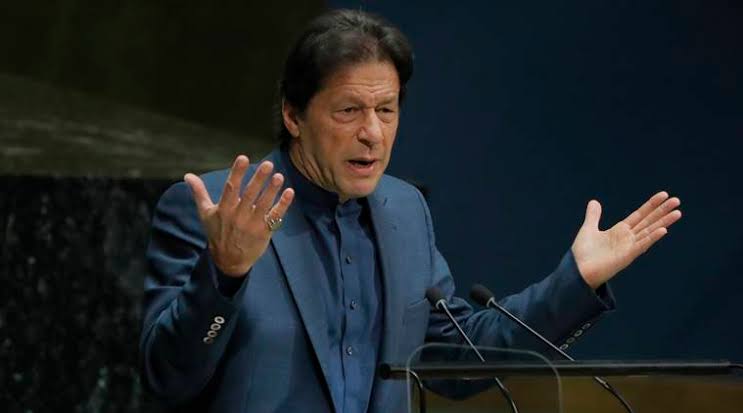United Nations: Hitting out at Pakistan for peddling “false narratives” against it, India has asked Islamabad that it must introspect about why it is universally acknowledged as the “international epicentre” of terrorism and the “best safe haven for terrorists.”
Mahaveer Singhvi, head of the Indian delegation, made the comments at a webinar ‘The Global Scourge of Terrorism: Assessment of High-Risk Threats and Trends, including the rise of Violent Extremism and Hate Speech in a Pandemic Environment’ Tuesday during the ongoing virtual Counter-Terrorism Week.
“While the world is coming together to battle the pandemic, it is unfortunate that Pakistan, a state which sponsors cross border terrorism, continues to use every opportunity to peddle false narratives and make baseless, malicious and egregious allegations against India and interfere in our internal affairs,” he said.
“The international community should call upon Pakistan to take sustained, verifiable and irreversible actions against terror outfits operating on the territory under its control. Pakistan must introspect upon why it is universally acknowledged as the international epicentre of terrorism and the best safe haven for terrorists,” Singhvi said.
Slamming Islamabad for raising India’s domestic policies and internal affairs, including the issue of Jammu and Kashmir, he said even as Pakistan provides shelter and support to terrorists, it continues to peddle false and motivated narrative on the situation in the Union Territory.
“It is seeking to portray its military, financial, logistical support to cross border terrorism against India as a freedom struggle. It is also peddling misinformation about India’s domestic legislation and policies,” he said.
If Pakistan wishes to be taken seriously in the fight against the “even more destructive virus of terrorism,” it must look inward and live up to its commitments and abandon its “divisionary tactics,” he said.
While Pakistan conveniently blames others, it “turns a blind eye” to the human rights violations in Balochistan, Khyber Pakhtunkhwa and territories of Jammu and Kashmir illegally occupied by it, he said.
“It has also systematically and consistently discriminated against its religious and cultural minorities,” Singhvi said, adding that reports of forced conversions, attacks on religious places of minorities, including Ahmedias, Christians, Hindus and Sikhs in Pakistan are well known to the world.
“India is the largest democracy in the world where all faiths receive equal treatment, as mandated by the Constitution. Members from minority communities have held high offices in India, including presidents and prime ministers. Pakistan, being a theocratic State, may find it difficult to fathom India’s secular credentials.
“The least Pakistan could do… is to look into its own sorry state of affairs and put its house in order before pointing fingers at others and spewing venom against the democratically-elected Indian government and its leaders,” he said.
He also slammed Pakistan’s “ludicrous” statement claiming credit for eliminating Al Qaeda from its territory, saying it is “indeed ironic”, considering its leader Osama bin Laden, “has recently been glorified as a martyr, by none other than the Prime Minister of Pakistan on the floor of their Parliament….This is a chilling reminder of the patronage that the international terrorists receive in Pakistan.”
He said Prime Minister Imran Khan had publicly acknowledged the presence of up to 40,000 terrorists in Pakistan and that terrorists from there have attacked neighbouring countries.
He also cited a recent report by the Analytical Support and Sanctions Monitoring Team of the UN Security Council stating that around 6,500 Pakistani terrorists belonging to Jaish-i-Mohammed and Lashkar-e-Taiba are operating in Afghanistan.
“Pakistan’s role as epicentre of terrorism has been well documented by numerous international organisations” including the UN and the Financial Action Task Force.
“Unlike Pakistan, India does not make any distinction between terrorists and invariably condemns terror attacks anywhere in the world,” including the recent Karachi attack, he said.
Recalling the 2008 attack on the Indian embassy in Kabul by a Pakistan-supported terrorist group that claimed several lives, he said, “it is very unfortunate that a country which perpetrated terrorist attacks in Mumbai (2008), Pathankot (2016), Uri and Pulwama is now preaching to the world community.”
He said India continues to face the scourge of state-sponsored cross border terrorism.
“Terrorists have made innumerable attempts to infiltrate into our country from their safe abodes across the border to carry out attacks and have even used unmanned aerial systems to smuggle weapons across our borders,” he said.
Globally, there have been “malevolent attempts” by terrorists to exploit the distress caused by lockdowns and disturb cohesiveness of societies, he said, adding that the increased presence of people online has been targeted by terrorists to spread misinformation through hate speeches, fake news and doctored videos.
Terror groups have also exhorted supporters to target security forces and health workers and proscribed terrorist outfits are collecting funds under the garb of charitable activities to finance terror.
“As the world grapples with COVID-19, it is important to augment international legal frameworks to coherently fight against terrorists, whose disruptive activities continued and, in fact, increased during the pandemic,” he said.
PTI

